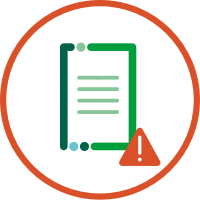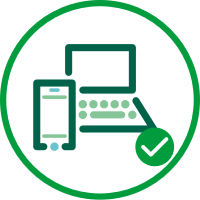Alcohol addiction: intervening with an employee
Duration: 4:57
Transcript
People struggling with alcohol addiction don’t typically reach out for help. They often loose self-esteem and refuse to talk about their condition. In most cases, only peer-pressure from family, friends or colleagues raises their awareness. It opens their eyes to the impact of their alcohol abuse and how valuable they are to the people around them.
As a result, employers are more likely to request assistance for this type of treatment given the risk of accidents and criminal negligence.
A manager’s first step is to identify potential signs of problem drinking. Importantly, he or she should document their observations to help draw a clear picture of the situation and avoid generalizing an isolated incident.
The second and decisive step is to meet with the employee. It’s the manager’s opportunity to clearly communicate the observed issues and demonstrate genuine concern for a health issue requiring professional assistance. In some cases, some employers may require psychological counselling or alcohol treatment. Organizational health is a responsibility shared by both the employer and employee and, for that reason, both parties must commit to the meeting.
The third step could involve monitoring the employee’s progress. Some measures could be more restrictive than others. It all depends on the degree of the issue, its frequency and its severity. Monitoring is key to the success of the intervention. A good approach is to begin with follow-ups a few weeks after determining corrective measures.
At any given time, the manager may have to deal with an advanced state of disorganization from the employee. For example:
- Drinking in the workplace
- Or being drunk while at work
This kind of disorganization must be handled immediately. The manager must intervene and meet with the employee.
After the meeting, the manager may choose to send the employee home. Importantly, the employee’s disorganization in the workplace must not be ignored; the manager must take immediate action against the employee or situation.
It can be challenging for a manager to meet with an employee struggling with alcohol abuse.
Follow these pointers:
- Meet in a private area to preserve confidentiality
- Be well-prepared for the meeting
- Review your notes and observations
- Gather information appropriate to the meeting
- Be aware of available resources and how to reach the assistance program
- Be empathic yet firm
- Avoid confrontation with direct accusations
- Set a follow-up date and write a report using notes jotted down during the meeting
In case of significant concerns or conflict of interest, we recommend discussing the matter with a superior or contacting the human resources department.
A key success factor to the effective treatment of alcohol addiction is to coordinate stakeholders, specialized care facilities, doctors, employees and even insurers who cover the treatments.
In some cases, a simple consultation – with or without treatment – will produce interesting results and the withdrawal phase will be to cease drinking or to taper off alcohol consumption.
Help programs and community initiatives offer specialized help for drug dependence, including:
- Canadian Centre on Substance Abuse
- Alcoholics Anonymous
- Drug and Alcohol Helpline (in Ontario)
- Drugs: help and referral (in Quebec)
- and Éduc'alcool (in Quebec)
Regardless of the type of addiction, the assistance program is available to managers and employees looking to get the psychological and/or medical help they need to regain their health.
To find out more about this topic, we suggest you read the reference document.
In case of any questions, doubts or a specific need for support, don’t hesitate to contact the specialized support service offered to the eligible individuals.

 Sign up for pre-authorized debit
Sign up for pre-authorized debit 